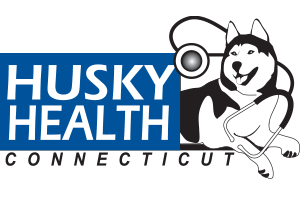
CMO Corner: Lawrence Magras, MD, MBA, FHM, FAAPL
Diabetes: A Look into the Future
Type 2 diabetes is the most common form of diabetes representing 90 to 95% of all diagnosed cases according to the Centers for Disease Control and Prevention (CDC).1 In the last 20 years, the number of adults diagnosed with diabetes has more than tripled as the United States population has aged and become more obese, and now more than 30 million Americans have diabetes.2. . . read more
There has been described an impending tsunami of diabetes with more than 84 million American adults (1 in 3) having a condition known as “prediabetes,”3 which has been shown to progress to type 2 diabetes in about 11% of cases.4 The majority of individuals (90%) with prediabetes are living unaware that they have this condition.5 Research projects that by the year 2030, 107.7 million Americans will have prediabetes and a third of those individuals will go on to develop type 2 diabetes.6 Diabetes has an extremely burdensome economic impact on the individuals and families suffering with this condition, and the healthcare system as a whole. In 2017 alone, the total estimated cost of diagnosed diabetes was $327 billion.7 The time to act is now and Community Health Network of Connecticut, Inc. (CHNCT) is developing population health initiatives aimed at preventing the progression from prediabetes to type 2 diabetes in your HUSKY Health patients.
CHNCT, in collaboration with the Connecticut Department of Social Services (DSS) is designing both pediatric and adult approaches to address the obesity epidemic and reduce the number of individuals who advance from prediabetes to type 2 diabetes. The overall goals for these initiatives include: improving the quality of life for HUSKY Health members living with obesity and prediabetes; reducing the prevalence of more serious illnesses that can be a result of type 2 diabetes (e.g. kidney failure, blindness, heart disease, etc.); and reducing long-term healthcare expenditures through investing in preventive care services. Interventions will be developed to take a population-based approach that addresses the following key factors: health promotion, obesity and prediabetes prevention, behavioral health integration, and social determinants of health. As the obesity and diabetes initiatives are further defined, CHNCT will share more information and call on all Connecticut Medical Assistance Program (CMAP) providers to play an active role in ensuring individuals living with prediabetes can have every opportunity for a healthy lifestyle.
References:
1 https://www.cdc.gov/diabetes/pdfs/data/statistics/national-diabetes-statistics-report.pdf
2 https://www.cdc.gov/diabetes/prevention/prediabetes-type2/index.html
3 https://www.cdc.gov/diabetes/prevention/prediabetes-type2/index.html
4 https://www.ncbi.nlm.nih.gov/pmc/articles/PMC3891203/
5 https://www.cdc.gov/features/diabetesprevention/index.html
6 https://www.ncbi.nlm.nih.gov/pmc/articles/PMC5278808/
7 https://www.cdc.gov/diabetes/prevention/prediabetes-type2/index.html
Coding for prediabetes and obesity
Coding for all conditions and services using valid diagnosis and procedure codes can assist you in answering important questions such as, how many of my patients are obese or have prediabetes? This data also allows CHNCT to target initiatives to improve patients’ clinical care needs. The following codes can help to identify individuals with prediabetes and obesity, and track the frequency and consistency of Body Mass Index (BMI) assessment, HbA1c monitoring, and nutrition and physical activity counseling.
| Code Type | Codes | Description |
|---|---|---|
| ICD-10 DX | R73.03 | Prediabetes |
| ICD-10 DX | E66.01 through E66.9 | Overweight and obesity |
| ICD-10 DX | Z68.1 through Z68.54 | Body Mass Index (BMI) |
| ICD-10 DX | Z71.3 | Dietary counseling and surveillance |
| ICD-10 DX | Z02.5 | Encounter for examination for participation in sport |
| ICD-10 DX | Z71.82 | Exercise counseling |
| CPT | 3044F through 3046F | Most recent hemoglobin level (HbA1c) |
| CPT | 83036 and 83037 | Hemoglobin glycosylated (A1c) |
| CPT | 99401 through 99404 | Preventive medicine counseling and/or risk factor reduction |
| HCPCS | G0270 and G0271 | Medical nutrition therapy |
| HCPCS | G0447 | Face-to-face behavioral counseling for obesity |
Not all codes listed above are reimbursable. Please refer to the Physician Office and Outpatient Services Fee Schedule for a list of codes reimbursed by DSS. The fee schedule list can be downloaded by accessing the CMAP website: www.ctdssmap.com.
Finding ways to incorporate proper coding into an electronic health record (EHR) provides a thorough account of procedures and services rendered along with clinical information such as vital signs, medications, allergies, patient histories and concerns, and provider assessment findings.

Adult and Child Diabetes Gaps in Care Reports Available on the HUSKY Health Secure Provider Portal
We want you to have direct access to data regarding your HUSKY Health patients.1 The HUSKY Health secure provider web portal provides you with a variety of reports on your patients, regarding topics such as: gaps in care; admissions and discharges; ED utilization; and much more. . . read more
You can view important diabetes information for your adult and child patients attributed to you on the secure provider web portal.
The “Adult Diabetes Screening Tests - Gaps in Care” report details members 18 to 75 years of age with a diabetes diagnosis or diabetic prescription reported within the last two years, and who are attributed to you or your practice as the provider of their primary care and excludes dual eligible and opt-out members. These members are considered to have type 1 or type 2 diabetes. The report shows you the last service date for HbA1c and Nephropathy testing, and/or a retinal eye exam with an eye care professional.
The “Child Diabetes Screening Tests - Gaps in Care” report details members 4 to 17 years of age with a diabetes diagnosis or diabetic prescription reported within the last two years, and who are attributed to you or your practice as the provider of their primary care and excludes dual eligible and opt-out members. These members are considered to have type 1 or type 2 diabetes. The report shows you the last service date for HbA1c and/or a retinal eye exam with an eye care professional.
To access the reports, you must first set up an account on the HUSKY Health portal by visiting portal.ct.gov/husky, clicking “For Providers,” then “Provider Login.” Once you have an account, you will be able to request access to your reports. You will be notified via email when your report(s) are available for viewing. To learn more about how to gain access to the Provider Portal Reports, click here.
1 Reports are available to providers with HUSKY Health members attributed to them. HUSKY Health utilizes a monthly “attribution” process that assigns individual HUSKY Health members to a Primary Care Provider (PCP) based on the member’s “usual source of care” for primary care related services. Primary Care Providers who have chosen to be designated as PCPs for their HUSKY Health members are referred to as Tier 1 providers. In addition to this initial Tier 1 PCP attribution, the process allows for the addition of Tier 2 and Tier 3 attribution. Tier 2 attribution allows for primary care providers who have not requested to be designated as a PCP to have members attributed to them. Tier 3 attribution identifies members who do not receive care from Tier 1 or Tier 2 providers, but receive their usual primary care from a non-traditional primary care specialty such as an OB/GYN, women’s health, endocrinologist, or oncologist.

Guiding Patients to Weight Management
Obesity is a serious and costly public health problem. As stated by the Connecticut Department of Public Health, more than one-third of U.S. adults (34.9% or 78.6 million) and 1 in 6 children and adolescents in the United States are obese.1. . . read more
Obesity increases an individual’s risk of heart disease, stroke, diabetes, and high blood pressure. However, a moderate weight loss of 5-10% is associated with a reduction of these risk factors. To help guide and support patients on their journey to achieve and maintain a healthy weight, Registered Dietitian Nutritionist (RDN) services are available to all HUSKY Health members at no cost, regardless of age. RDNs encourage members to make healthier food choices in addition to helping them improve and/or maintain a healthy weight. RDNs work collaboratively with the Intensive Care Management (ICM) team to provide knowledge on evidence-based nutritional guidelines to help patients set and achieve their weight management goals through portion control and serving sizes, the importance of a well-balanced diet, and choosing the right beverages to stay hydrated. They collaborate with providers to reinforce the providers’ recommendations for weight management and also offer ways to help members follow provider recommended diets. Plan of care letters are sent to providers indicating the weight management goals for their patients engaged in ICM.
If you have HUSKY Health patients who would benefit from RDN services or additional support provided by ICM, call 1.800.440.5071 x2024, or fax a completed ICM Referral Form to 866.361.7242.
Reference:

Addressing Risks Associated with Obesity in Pregnancy and Prediabetes
The percentage of pregnant woman with diabetes is on the rise.1 Utilizing the Healthy Beginnings program, Community Health Network of Connecticut, Inc. (CHNCT) aims to help. . . read more
Healthy Beginnings is an Intensive Care Management (ICM) specialty program for perinatal members. The focus of the program is to minimize barriers in order to achieve the best maternal/infant outcomes. In addition to providing extensive evidence-based person-centered coaching, our nurses provide comprehensive care management services including, but not limited to: locating providers; making referrals to community resources to address unmet basic needs; and accessing HUSKY Health benefits such as durable medical equipment (DME) and appointment transportation.
Since weight plays a role in a person’s risk for prediabetes and type 2 diabetes,2 ICM care managers gather information from HUSKY Health members3 regarding access to nutritious food. They offer assistance to members on obtaining and using other programs available through the State of Connecticut, such as the Supplemental Nutrition Assistance Program (SNAP) and the Special Supplemental Nutrition Program for Women, Infant, and Children (WIC). Further, ICM care managers work in conjunction with Community Health Workers (CHWs) and Registered Dietitian Nutritionists (RDNs) who assist members with locating an adequate food supply and following provider-prescribed healthy meal plans, respectively; a Certified Diabetes Educator® (CDE®) is also available for consultation and education. This collaboration leads to comprehensive coaching for each member enrolled in the Healthy Beginnings program.
When considering risks in perinatal members, it is important to keep in mind the role of breastfeeding. Breastfeeding leads to a lower risk of diabetes in both babies and mothers.4 ICM care managers discuss the benefits of breastfeeding and encourage it as a way to promote future health. CHNCT also offers ICM Lactation Specialists who provide coaching on common breastfeeding questions and concerns.
Through thorough coaching, education, and support, members will understand proper meal portions, healthy meal choices, and health hygiene for themselves and their families. Familial changes such as incorporation of healthier eating patterns and regular physical activity should occur as a result of incremental modifications which are promoted with setting person-centered goals.
ICM staff is here to offer support and education to your HUSKY Health patients as well as reinforce your prescribed plan of care to increase the likelihood of good health outcomes as they relate to obesity or chronic health conditions. If you have patients that would benefit from the additional support provided by ICM, including the Healthy Beginnings program, please call 1.800.440.5071, x2024, or fax a completed ICM Referral Form to 866.361.7242
References:
1 https://www.cdc.gov/reproductivehealth/maternalinfanthealth/diabetes-during-pregnancy.htm
2 https://www.cdc.gov/diabetes/basics/risk-factors.html
3 Specifically members enrolled in ICM
4 https://www.womenshealth.gov/breastfeeding/making-decision-breastfeed

